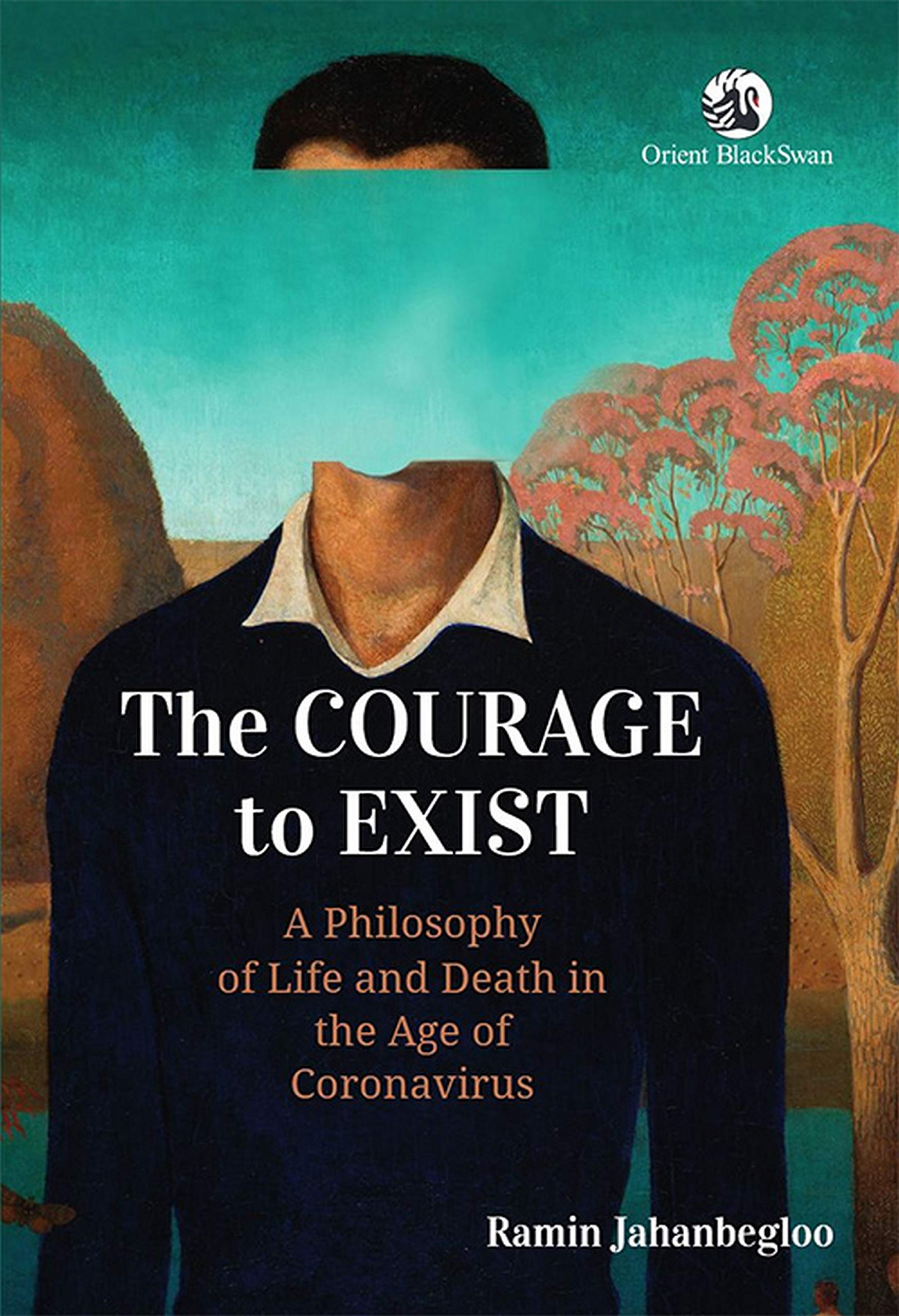Book: The Courage to Exist: A Philosophy of Life and Death in the Age of Coronavirus
Author: Ramin Jahanbegloo
Publisher: Orient BlackSwan
Price: Rs 195
The pandemic that was, the pandemic that is — and a long, dark pandemic of the soul that will be remembered in the centuries to come if we are to survive species death — has not reached the point in time from where it can be regarded with enlightened or dissociated serenity. But as of now, since our minds have begun a slow drift away from the fearful and immediate contemplation of death in extreme isolation, the daily death counts encountered as fuzzy statistics, and the never-before-experienced inner zones of spiritual vacuity, accounts of how people intellectually dealt with the pandemic have gradually begun to make sense. Written by a political philosopher — an Iranian-Canadian freethinker of Kurdish descent who had earlier survived long days of solitary imprisonment in Iran — this small book tries to rediscover meaning in life by looking at what irrevocable changes have happened to our views on life and death.
This is not a sustained philosophical treatise, nor a self-help manual full of niceties. Discerningly written in the cruel months of State-imposed sudden lockdowns and social policing in India, it evokes the solitude of a time when a large section of humanity lived as lonely, self-isolating creatures shunning human contact, melancholic, paranoid, emotionally broken or obscenely self-indulgent, while a larger group of humans resiliently trudged across insular cities and metropolises to find their way home. Jahanbegloo’s prose shuns a philosopher’s language to atypically engage with a diverse range of thinkers, from Seneca to Pascal, Hegel and Schopenhauer, Thoreau, Gandhi, Levinas, Camus, Weil, Martin Luther King and Mishima to find meaning in a strange world where both living and dying honourably have been rendered insignificant. Fragments of philosophical wisdom abound, recording experiences that were once — and are still — valid; they call on readers to re-evaluate their lived experiences of the pandemic through a reading of these dead thinkers — through their individualized moments of isolation, pain, searching, and possible transcendence. These coexist with his own musings on the pandemic. Adopting a guarded, slightly impersonal, tone, which prevents the emotive personal from revealing itself, the voice that emerges is new — quite distinct from the personalized, conversational tone of On Forgiveness and Revenge (2017) where Jahanbegloo talks about the realizations he had while being held in solitary confinement, or the enthusiastic voice of his earlier book on Albert Camus. At times, it speaks maxims and utterances, which seem directed at his inner self.
To live and to die without thinking are relatively simple — Jahanbegloo begins by agreeing with the ancient Stoics. But to focus on living a “good life” while living in isolation in a world where death and dying constantly abound is to live the inescapable life of an idiot. The word, “idiot”, he reminds us, apart from its obvious connections to the state of being an ignoramus, was used by the ancient Greeks to scorn the “illiterate leisure” of the idiotai — individuals who thought of themselves as private and not accountable members of the polis.

Book title: The Courage to Exist: A Philosophy of Life and Death in the Age of Coronavirus by Ramin Jahanbegloo, Orient BlackSwan, Rs 195 Amazon
The pandemic has revealed newer aspects of our fallback to idiocy, violence and brutality — the swampy backwaters of instinctual fears, prejudices and perceptions our minds had once crawled through and thought that they had been left behind. It has likewise revealed that, Jahanbegloo points out, our new conceptualization of death and mortality is formed by living the realities of a “post-theological world”: “even those who believe in the story of the Apocalypse wear masks and go to the hospital to be tested for corona.” Unlike the three major pandemics of recorded history (the Plague of Justinian, the Black Death, and the Bombay Plague), the Covid-19 pandemic was not projected as a divine act of retribution, a punishment for human sins.
How did we, then, come to devalue death? The problem, he feels, lies in the disrespect we have for the lives of others and the act of living our own lives as insular creatures. If death appears to be reduced to numerical “meaninglessness” by the global reach of the pandemic, it has revealed a fragility intrinsic to the human condition — a fragility which had been at the core of our species-being since its inception. What made our realization of this fragility so sudden and so precipitous, Jahanbegloo argues, is the fact that we were abruptly reminded of the “failing structures of our social and political life, where governments are incapable of meeting their responsibilities as the protectors of peoples’ lives and wellbeing.”
The book ends with a note of hope. Jahanbegloo says that the pandemic has given us a dangerous gift: “the gift of knowing that we can change our views of life and death.” It has also inaugurated what the Czech philosopher, Jan Patocka, called the “solidarity of the shaken” — the realization that in the face of any great tragedy, we, as humans, are bound together in an ineliminable network of inter-relationships. And perhaps therein lies our key to learning greater empathy.











